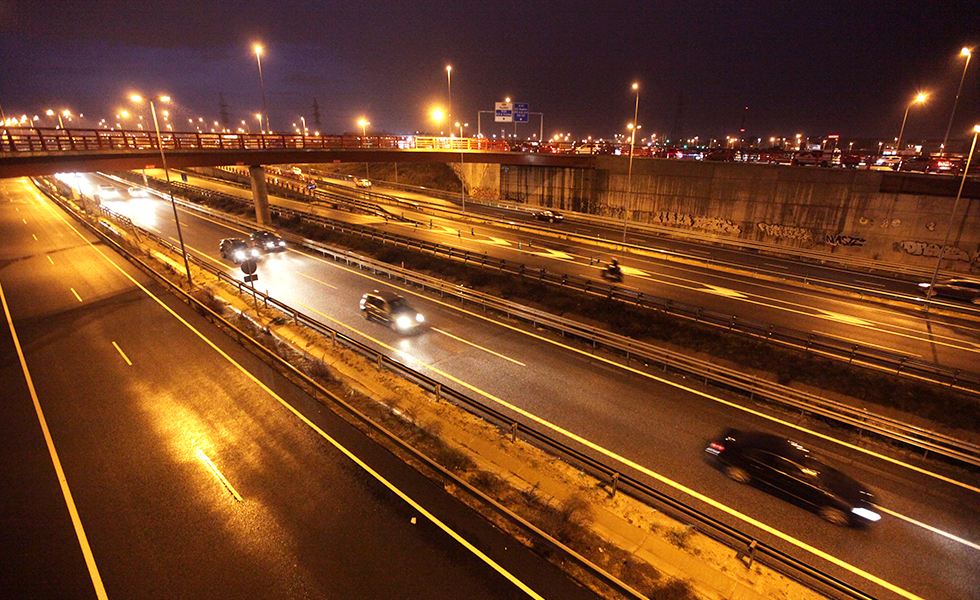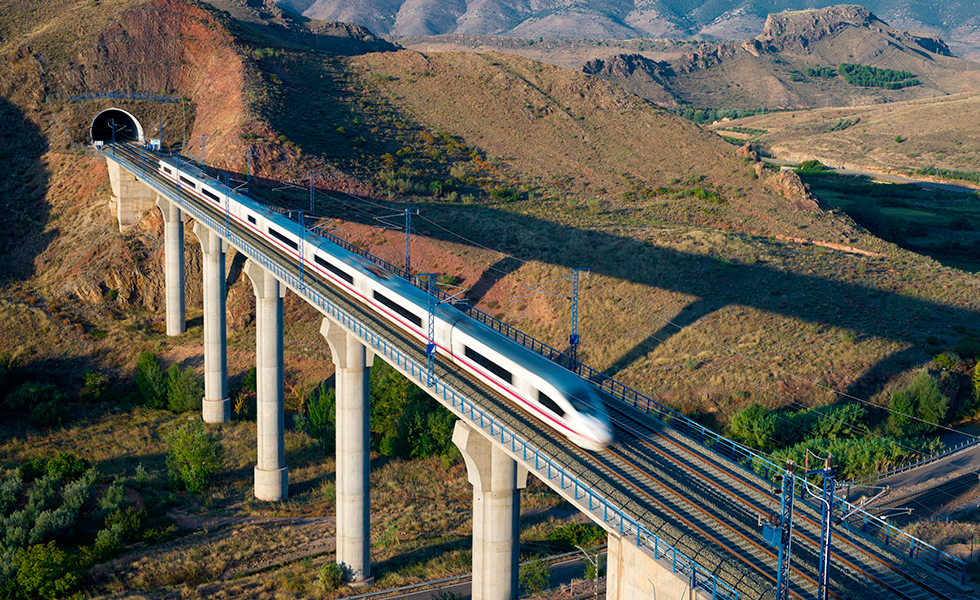With concessions in eight countries and continuously identifying new opportunities around the world, Globalvia is one of the leading infrastructure managers in the transport sector. Each country has its own unique characteristics and infrastructure development plans, with urban and interurban projects funded by private initiatives or public-private collaborations.
Globalvia is cognizant of the important technological changes that are affecting and will continue to affect the use of infrastructure in the short and medium term. Electric vehicles, autonomous vehicles, platooning, C-ITS, free-flow, car sharing, the interoperability of European electronic tolls, Big Data and different combinations of the above are no longer concepts that are only talked about at innovation forums. Some of them are examples of technological changes that are gradually beginning to appear in our daily lives and others are in the advanced stages of development and will soon become a reality.
In the urban realm, cities are currently facing two major challenges: managing mobility due to rising populations on the one hand and protecting the environment on the other.

Sustainable, user-friendly and environmentally friendly cities penalise the use of private vehicles in metropolitan areas, with a proliferation of options related to private and sustainable mobility, such as bike rentals, electric vehicles and car sharing. Some in the sector question whether these new services will reduce the use of public transport, but these trips are mostly associated with recurring travel, while carpooling is associated with occasional trips. As an example, the users of Madrid’s metro, where Globalvia has three concessions, increased by 7.2% in 2017 compared to 2016, even though there are two car sharing systems now fully operational in the capital with a total of 1,000 units, in addition to two moped-sharing systems and one bike rental system. The same can be said of other European capitals where such services have been introduced.
As far as inter-urban transport in Spain is concerned, following a decade in which investment in infrastructure has been gradually declining, the serious deficits in transport systems must be corrected. In terms of motorways, the new 2018-2020 investment plan (PIC) under a concession arrangement that is being developed by the Government aims not only to build new infrastructure but also, and equally important, to renovate and improve existing roads in a way that will change the way drivers think about road travel. With extensive experience in these types of projects, Globalvia is a solvent company capable of managing such projects not only during construction but throughout the concession period as well.
As we build better networks at the global level, the arrival of vehicles with the ability to communicate with nearby vehicles (V2V, platooning), to visualise the roads they are travelling on (autonomous vehicles), to communicate with the infrastructure (V2I) in order to transfer information to other vehicles travelling on the same road or to receive information from the infrastructure (I2V), will transform driving time into “useful” time that can be spent doing other things. It has been shown that the real benefits of these vehicles will be achieved when they are able to connect with each other and with the infrastructure. By taking the human factor out of the driving equation, societies will benefit from lower accident and congestion levels.
In the face of imminent technological changes, things like stopping at a toll plaza to pay the toll are becoming outdated, while technologies such as free-flow or payments using mobile devices without having to stop, which Globalvia is already using with some of its assets, are gradually becoming the norm.
Because of these technologies, in addition to the use of cleaner engines and the way in which they are recharged, in the coming years the progress clauses in contracts will focus on adapting roads to accommodate these new types of vehicles.
In the Spanish rail sector, the high-speed networks needed to connect the different areas of the country with one another must be completed. Although the government, through ADIF, is the promoter of rail infrastructure, it is expected that the passenger transport sector will be liberalised in 2020. This represents an opportunity for companies like Globalvia, which already has experience in metros and trams with 8 operating concessions in Spain and a railway operator’s license to transport cargo and passengers. Other countries such as the United Kingdom and the United States are betting on high-speed corridors and notable in this area was Globalvia’s participation on the definition of the operating strategy for the Los Angeles-San Francisco connection.

In addition to the advances in vehicles and infrastructure, other technological innovations are emerging that will redefine the way in which mobility services are provided: Big Data, Internet of Things, Automation, Artificial Intelligence, robotics and even drones.
These developments have different implications for motorways and railways:
- User needs: Big Data can be used to analyse scenarios in which systems inform users of alternative routes in real time, determining the best routes and modes of transport, adapting capacity to demand, introducing dynamic pricing and even making decisions for us in the case of autonomous cars.
- Infrastructure design: this involves major investments and it is important to consider the needs of the different stakeholders in the projects. Predicting the evolution of these needs is already a reality using Big Data techniques. Once a project is approved, new elements must be incorporated into the design, such as safety enhancements and more ecological and environmentally-friendly solutions like paint that reflects temperature changes or is visible at night without lights, pavements that store energy and allow electric vehicles to be charged, etc.
- Infrastructure operation and maintenance: in this area, Big Data, IoT and artificial intelligence facilitate automation and decision-making regarding different components of the infrastructure.
Globalvia will continue to play an important role in infrastructure management with its 20- to 99-year contracts, incorporating present and future technological innovations into our processes. To do so, Globalvia participates on various domestic and international forums in the sector, working to implement new transport models that integrate the different types of innovations within an appropriate regulatory framework. The company’s innovation-oriented structure and internal policies are based on sustainability and user satisfaction as the main pillars of our management and decision-making model.
